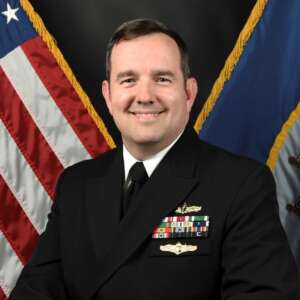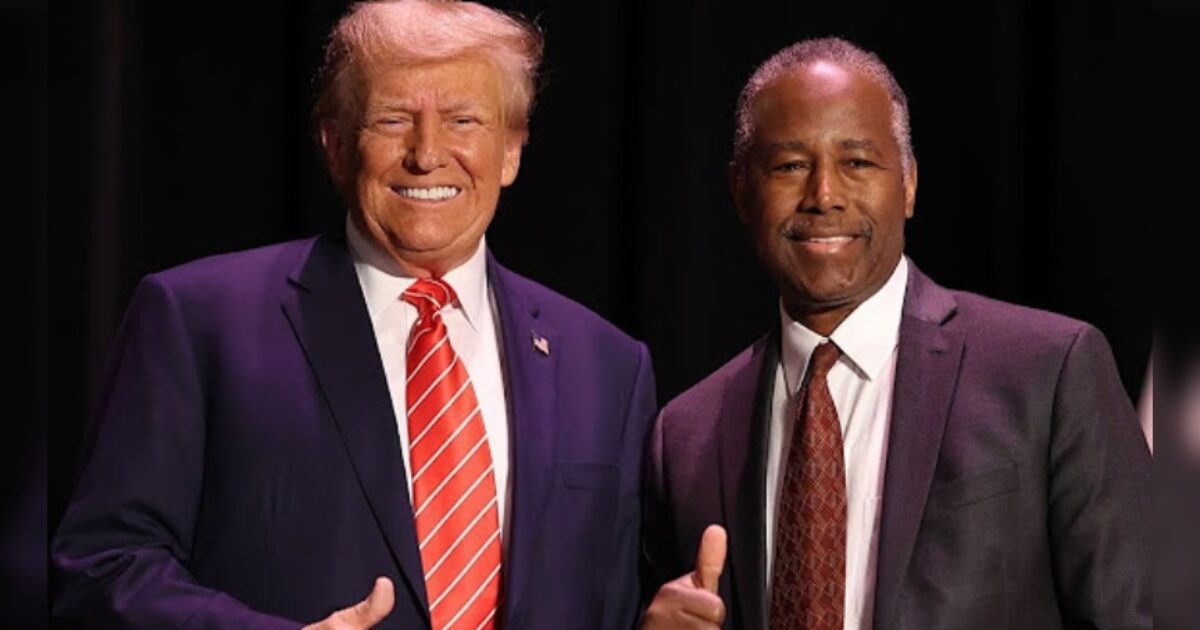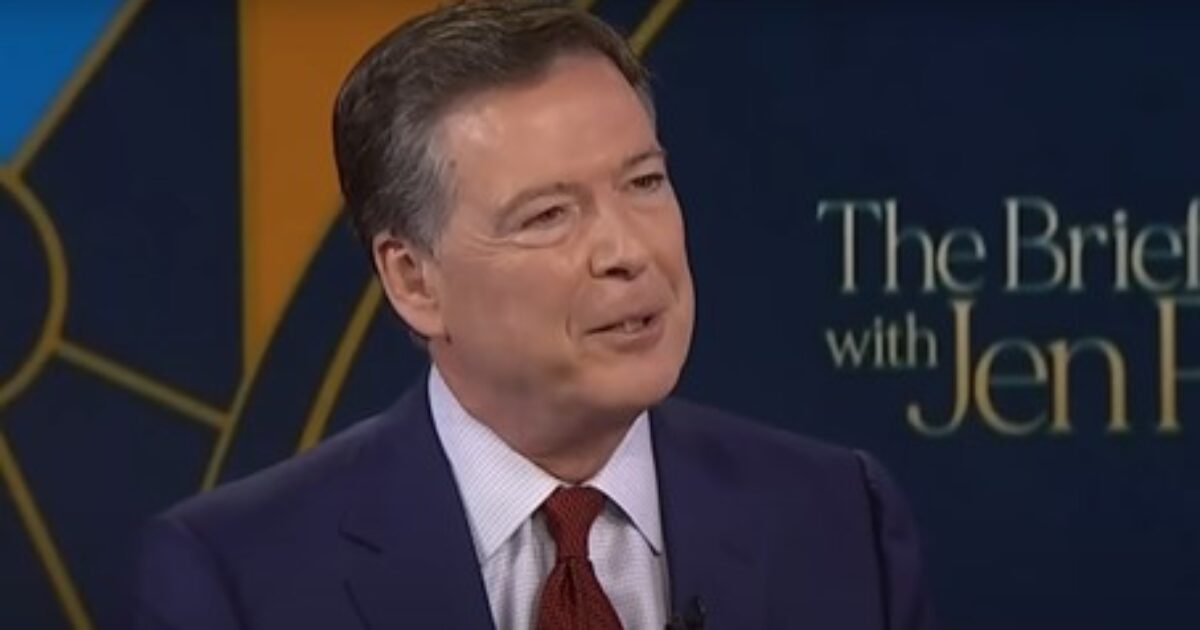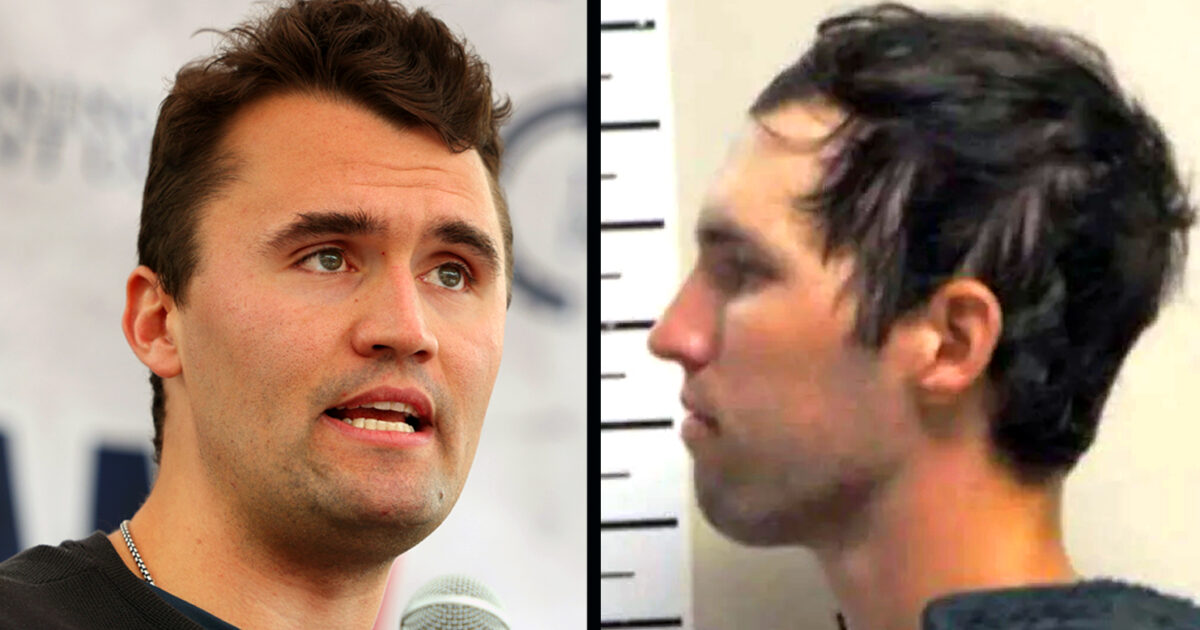Politics
Navy PEO C4I focusing on speed, creativity, effectiveness

Agencies and contractors often throw around the word “innovation” like sprinkles on ice cream. A little bit here and a little bit there.
But one Navy organization is trying to take the concept of innovation and spread it around like hot fudge.
Capt. David Gast, the innovation lead for the Navy’s Program Executive Office for Command, Control, Communications, Computers and Intelligence (PEO C4I), said innovation doesn’t happen with a new technology or new approach, but it comes from asking questions about how the Navy can do things faster, more creatively and more effectively.
Capt. David Gast is the innovation lead for the Navy’s Program Executive Office for Command, Control, Communications, Computers and Intelligence (PEO C4I).
“What are the metrics by which we measure our readiness as an organization from a technology and capability perspective? How agile are we? How resilient are we? How rapidly can our systems recover from faults or attacks or that sort of thing?” Gast said on Ask the CIO. “It’s really what are the measures by which we know we’re getting better as an organization? The way I look at it, at my role, is how do we prepare ourselves for whatever future comes, rather than a specific date and a specific challenge?”
Capt. David Kuhn, the Wartime Readiness Officer also with Navy PEO C4I, said the organization’s action plan, called Pinnacle 27, is an example of how they are not only aligning their innovation efforts to the Navy Navigation Plan, but focusing on answering all of his questions across three lines of effort: C4I readiness, fleet readiness and critical warfighting advantage.
“What are the things that we in PEO C4I, which is an acquisition command that provides all of the key C4I gear to these ships, submarines and shore sites, need to be focused on for 2027 and beyond? Because the other key thing that Dr. [Bill] Luebke, [the Navy’s PEO for C4I] was very clear with me is that Jan. 1, 2027 is our target date. But it’s not a one and done. It isn’t that we get to January 2 and we’re done. … This is for posterity,” Kuhn said during an interview after speaking at West 2025 sponsored by AFCEA and the U.S. Naval Institute. “What’s the focus getting to January 1 and then how do we keep accelerating beyond there to maintain and so he’s asked me to look across the PEO and we’ve identified three different areas or lines of effort. What do we need to be doing within PEO C4I to have our workforce ready, our facilities ready and understanding our critical systems.”
This means PEO C4I has to also focus on getting the Navy’s technology in better shape to deal with things like contested logistics, autonomous vehicles, cybersecurity threats and attacks and ensure sailors and Marines can fight from the maritime operations centers (MOCs).
Software improvements needed
Kuhn said PEO C4I provides a lot of equipment and technology that goes into the MOC to ensure commanders get the data they need to drive decisions.
“We are going after a full scale model-based systems engineering approach, where we’re going to be mapping our different systems and all of the pathways they have. So for instance, how do I map a data flow and fight from the MOC and then, as our systems engineer them, rather than have a separate group, have to pay and go create this interface and this mission threat analysis, if I’ve done my model-based systems engineering right, when my system makes an engineering change, that mission threat analyst can suck in the change and see what happens to the architecture and what’s about to happen, rather than us have to find that out later or spend extra money to go back and fix it before we can field it,” he said. “That will speed up the pace of change, and it will also tighten our integration. We’ll use that also to develop our critical systems list, which we will coordinate with the fleet to say these are the systems that we think are most important from a contested logistics perspective or from a kill web perspective — do you agree? Because if we discover a problem here, how do we pivot? If there’s a gap filler system, that’s the one we should emphasize over this other system, which is a good system, a nice to have system, an important system, but maybe isn’t that gap filler. We can help score that impact across the C4I enterprise.”
The move toward model-based systems engineering is part of a broader effort to improve the software pipeline on ships.
Kuhn said the goal is to create more agility and speed in how PEO C4I, or whomever, updates or adds new capabilities to applications rather than having to replace the hardware.
Solving near-term problems
Gast said the Navy will continue to put technology racks on ships, but the focus is more about the entire compute infrastructure that is required to meet current and future capabilities.
“One of the things I’ve learned over the course of my career is the way you think about problems changes and the solutions that become apparent to you as possible ways of solving that problem. Everything I’m doing is very much in support of that, and it’s really because we have that limited timeline, Jan. 1, 2027 we have to be ready, and then we have to remain ready for the foreseeable future,” he said. “It’s less about predicting what that future is, and ensuring that the systems that we design, deploy and maintain support over time are ready for whatever that strategic surprise is. And because of the tight timeline we’re on, how rapidly can we change the way we operate to make them as agile as possible, as soon as possible.”
Gast added this also means that C4I has to look toward the future about current and emerging technologies that could impact the service.
“What could we incorporate of what’s possible today? What are the things that industry is already doing or other organizations are already doing that we can take advantage of to position ourselves for whatever that next thing is?” he said. “Things like designing for instability, so that we don’t have to put a ship in a shipyard for months at a time just to upgrade the network on that ship, which is the historical way we’ve done it. Captain Kuhn and myself are both trying to drive the organization toward the same problem set.”
The post Navy PEO C4I focusing on speed, creativity, effectiveness first appeared on Federal News Network.
Politics
President Trump Taps Dr. Ben Carson for New Role — A HUGE Win for America First Agenda

Dr. Ben Carson is the newest member of the Trump administration.
On Wednesday, former Secretary of the Department of Housing and Urban Development, Ben Carson, was sworn in as the national adviser for nutrition, health, and housing at the U.S. Department of Agriculture.
Agriculture Secretary Brooke Rollins shared that Carson’s role will be to oversee Trump’s new Big Beautiful Bill law, which aims to ensure Americans’ quality of life, from nutrition to stable housing.
After being sworn in, Carson shared, “Today, too many Americans are suffering from the effects of poor nutrition. Through common-sense policymaking, we have an opportunity to give our most vulnerable families the tools they need to flourish.”
WATCH:
BREAKING Dr. Ben Carson has been sworn in as the National Nutrition Advisor to Make America Healthy Again
THIS IS A HUGE WIN pic.twitter.com/Dr5AsSDkRM
— MAGA Voice (@MAGAVoice) September 24, 2025
Per USDA:
Today, U.S. Secretary of Agriculture Brooke L. Rollins announced that Dr. Benjamin S. Carson, Sr., M.D., was sworn in as the National Advisor for Nutrition, Health, and Housing at the U.S. Department of Agriculture (USDA).
“There is no one more qualified than Dr. Carson to advise on policies that improve Americans’ everyday quality of life, from nutrition to healthcare quality to ensuring families have access to safe and stable housing,” said Secretary Rollins.
“With six in ten Americans living with at least one chronic disease, and rural communities facing unique challenges with respect to adequate housing, Dr. Carson’s insight and experience is critical. Dr. Carson will be crucial to implementing the rural health investment provisions of the One Big Beautiful Bill and advise on America First polices related to nutrition, health, and housing.
“As the U.S. Secretary of Housing and Urban Development in the first Trump Administration, Dr. Carson worked to expand opportunity and strengthen communities, and we are honored to welcome him to the second Trump Administration to help lead our efforts here at USDA to Make America Healthy Again and ensure rural America continues to prosper.”
“Today, too many Americans are suffering from the effects of poor nutrition. Through common-sense policymaking, we have an opportunity to give our most vulnerable families the tools they need to flourish,” said Dr. Ben Carson. “I am honored to work with Secretary Rollins on these important initiatives to help fulfill President Trump’s vision for a healthier, stronger America.”
On Sunday, Dr. Carson was one of the many speakers at the memorial service of the late TPUSA founder Charlie Kirk.
During the memorial service, Carson highlighted that Kirk was shot at 12:24 p.m. and then continued to share the Bible verse John 12:24, which reads, “Verily, verily, I say unto you, Except a corn of wheat fall into the ground and die, it abideth alone: but if it die, it bringeth forth much fruit.”
WATCH:
Ben Carson reads John 12:24 at the Charlie Kirk’s funeral. Charlie was shot at 12:24.
It reads: “Very truly I tell you, unless a kernel of wheat falls to the ground and dies, it remains only a single seed. But if it dies, it produces many seeds”
God is moving and speaking. pic.twitter.com/0ZbVTAwwYl
— Danny Botta (@danny_botta) September 21, 2025
The post President Trump Taps Dr. Ben Carson for New Role — A HUGE Win for America First Agenda appeared first on The Gateway Pundit.
Politics
LEAKED MEMO: Deep State Prosecutors in the Eastern District of Virginia Claim There Isn’t Enough Evidence to Convict Comey Amid Reports of Imminent Indictment


On Wednesday evening, disgruntled officials in the Eastern District of Virginia leaked contents of a memo explaining why charges should not be brought against James Comey.
As reported earlier, former FBI Director James Comey is expected to be indicted in the Eastern District of Virginia in the next few days.
Comey will reportedly be charged for lying to Congress in a 2020 testimony about whether he authorized leaks to the media.
Officials in the Eastern District of Virginia are still fighting to stop Comey from being charged after Trump fired US Attorney Erik Siebert.
President Trump last week fired Erik Siebert as the US Attorney for the Eastern District of Virginia because he refused to bring charges against Letitia James, Comey, Schiff and others.
On Saturday evening, President Trump announced that he had appointed Lindsey Halligan – his personal attorney who defended him against the Mar-a-Lago raid – as US Attorney for the Eastern District of Virginia.
Now, with just days to go before the statute of limitations runs out to charge Comey for lying during a September 30, 2020 testimony, Lindsey Halligan is reportedly gearing up to indict Comey.
Prosecutors reportedly gave newly sworn-in Halligan a memo defending James Comey and explaining why charges should not brought against the fired FBI Director.
Per MSNBC’s Ken Dilanian:
Two sources familiar with the matter tell me prosecutors in the EDVA US attorney‘s office presented newly sworn US attorney Lindsey Halligan with a memo explaining why charges should not be brought against James Comey, because there isn’t enough evidence to establish probable cause a crime was committed, let alone enough to convince a jury to convict him.
Justice Department guidelines say a case should not be brought unless prosecutors believe it’s more likely than not that they can win a conviction beyond a reasonable doubt.
Two sources familiar with the matter tell me prosecutors in the EDVA US attorney‘s office presented newly sworn US attorney Lindsey Halligan with a memo explaining why charges should not be brought against James Comey, because there isn’t enough evidence to establish probable…
— Ken Dilanian (@DilanianMSNBC) September 24, 2025
The post LEAKED MEMO: Deep State Prosecutors in the Eastern District of Virginia Claim There Isn’t Enough Evidence to Convict Comey Amid Reports of Imminent Indictment appeared first on The Gateway Pundit.
Politics
Nearly 8 in 10 Voters Say the United States is in Political Crisis After the Assassination of Charlie Kirk

Nearly eight in ten voters believe that the United States is in a political crisis in the wake of the assassination of conservative icon Charlie Kirk.
According to a Quinnipiac University national poll of registered voters released on Wednesday, a massive 93 percent of Democrats, 84 percent of independents, and 60 percent of Republicans said the nation is in a political crisis.
“The Kirk assassination lays bare raw, bipartisan concerns about where the country is headed,” Quinnipiac University Polling Analyst Tim Malloy said of the poll results.
Quinnipiac reports:
Seventy-one percent of voters think politically motivated violence in the United States today is a very serious problem, 22 percent think it is a somewhat serious problem, 3 percent think it is a not so serious problem, and 1 percent think it is not a problem at all.
This is a jump from Quinnipiac University’s June 26 poll when 54 percent thought politically motivated violence in the United States today was a very serious problem, 37 percent thought it was a somewhat serious problem, 6 percent thought it was a not so serious problem, and 2 percent thought it was not a problem at all.
Nearly 6 in 10 voters (58 percent) think it will not be possible to lower the temperature on political rhetoric and speech in the United States, while 34 percent think it will be possible.
Over half, 54 percent, of voters believe the US will see increased political violence over the next few years. Another 27 percent said they think it will stay “about the same,” while just 14 percent believe it will ease.
A 53 percent majority also said they are “pessimistic about freedom of speech being protected in the United States.”
Surprisingly, a 53 percent majority also believes the current system of democracy is not working.
“From a perceived assault on freedom of speech to the fragility of the democracy, a shudder of concern and pessimism rattles a broad swath of the electorate. Nearly 80 percent of registered voters feel they are witnessing a political crisis, seven in ten say political violence is a very serious problem, and a majority say this discord won’t go away anytime soon,” Malloy added.
The vast majority, 82 percent, said the way that people discuss politics is contributing to the violence.
“When asked if political discourse is contributing to violence, a rare meeting of the minds…Republicans, Democrats, and independents in equal numbers say yes, it is,” Malloy said.
The survey was conducted from September 18 to 21 among 1,276 registered voters with a margin of error of +/- 3.3 percentage points.
The post Nearly 8 in 10 Voters Say the United States is in Political Crisis After the Assassination of Charlie Kirk appeared first on The Gateway Pundit.
-

 Entertainment6 months ago
Entertainment6 months agoNew Kid and Family Movies in 2025: Calendar of Release Dates (Updating)
-

 Entertainment3 months ago
Entertainment3 months agoBrooklyn Mirage Has Been Quietly Co-Managed by Hedge Fund Manager Axar Capital Amid Reopening Drama
-
Tech6 months ago
The best sexting apps in 2025
-

 Entertainment5 months ago
Entertainment5 months agoKid and Family TV Shows in 2025: New Series & Season Premiere Dates (Updating)
-

 Tech7 months ago
Tech7 months agoEvery potential TikTok buyer we know about
-
Tech7 months ago
iOS 18.4 developer beta released — heres what you can expect
-

 Tech7 months ago
Tech7 months agoAre You an RSSMasher?
-

 Politics7 months ago
Politics7 months agoDOGE-ing toward the best Department of Defense ever





